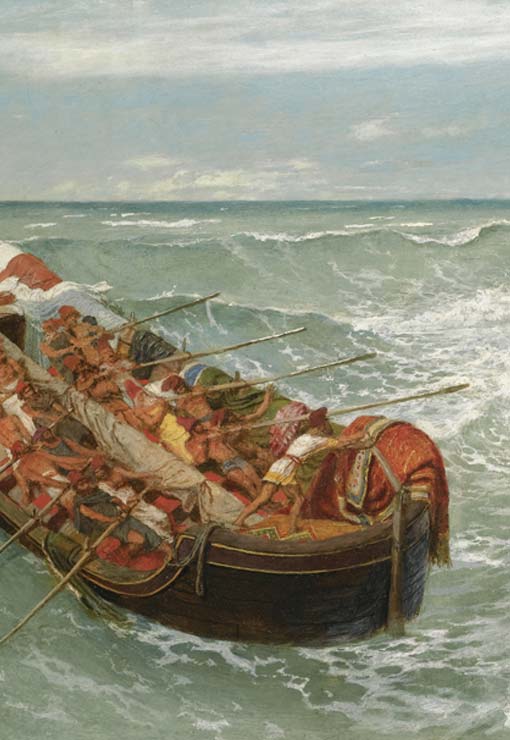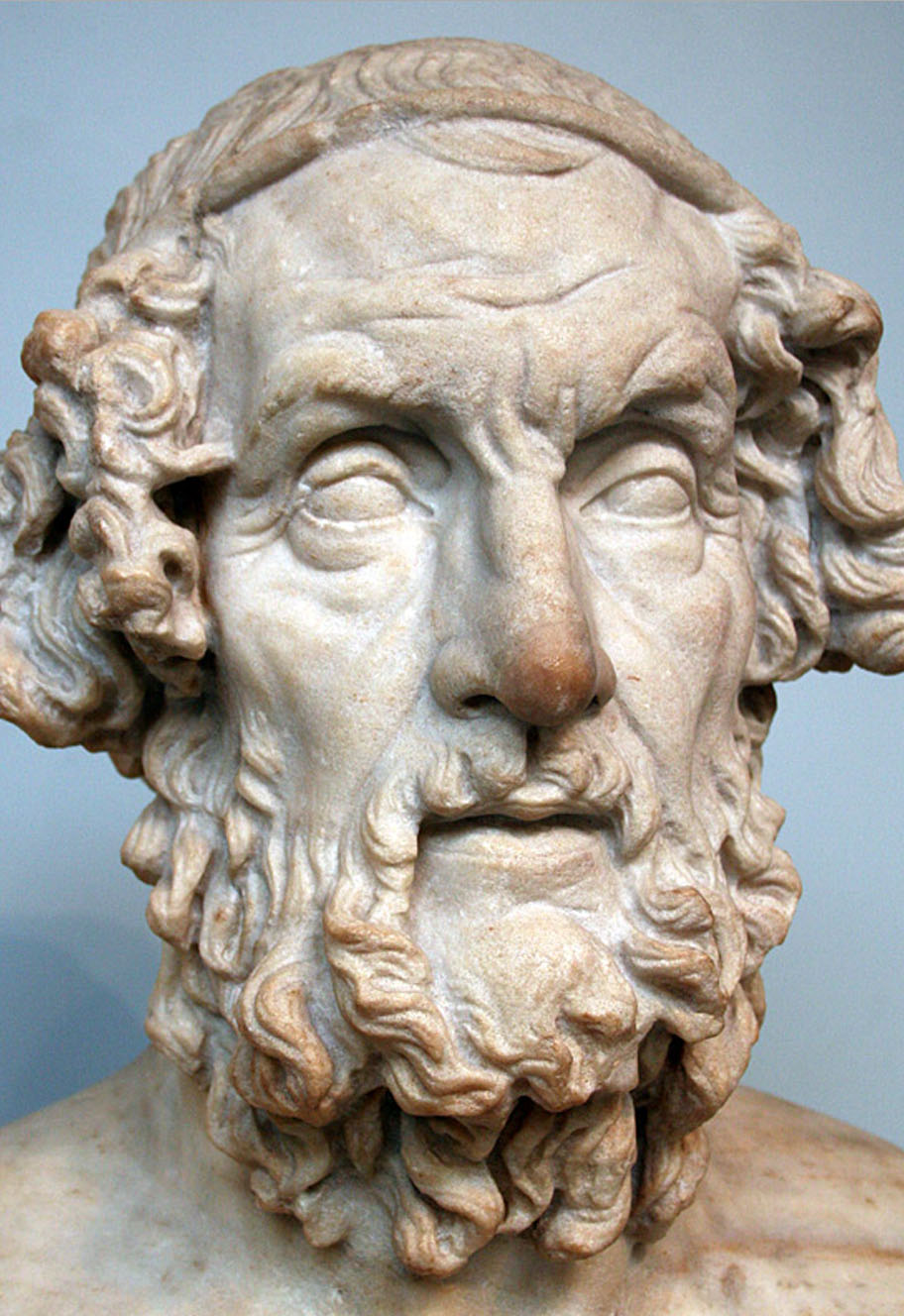Homer
Born:
C. 8th century BCE
Died:
Uncertain
Homer is an ancient Greek poet traditionally said to be the author of two of the greatest epic poems of ancient Greece: the "Iliad" and the "Odyssey." These poems are foundational works in Western literature, and Homer's influence has extended across centuries. Here are key aspects of Homer's life and contributions:
Identity and Historicity: The historical existence of Homer is a subject of debate among scholars. Some believe that he was a single historical figure, while others argue that the "Iliad" and the "Odyssey" may have been composed by multiple poets over time. Traditionally, Homer is described as a blind poet from the island of Chios.
Epic Poems:
- The Iliad: This epic poem narrates the events of the Trojan War, focusing on the wrath of the hero Achilles. It explores themes of honour, heroism, and the intervention of the gods in mortal affairs.
- The Odyssey: This epic follows the adventures of Odysseus as he attempts to return home after the fall of Troy. The "Odyssey" explores themes of cunning, loyalty, and the challenges of the journey.
Oral Tradition: Homer's epics are part of the oral tradition, meaning they were originally passed down through spoken word before being transcribed. The poems were recited by bards and rhapsodes, and their performances were an integral part of ancient Greek culture.
Homer as a Cultural Hero: Homer is often regarded as a cultural hero in ancient Greece. His epics were considered essential education, and he was revered as a source of wisdom and artistic inspiration. The ancient Greeks believed that Homer's poems conveyed important moral and cultural values, providing insight into the human condition.
Style and Language: Homer's style is characterised by its use of epithets, formulaic expressions, and vivid imagery. These elements contribute to the oral, rhythmic quality of the poems. The language used by Homer, known as Homeric Greek, became a literary standard in ancient Greece.
Heroic Ideal: Homer's works portray an idealised version of heroism. The heroes in the "Iliad" and the "Odyssey" are larger-than-life figures with both strengths and flaws, embodying virtues such as bravery, loyalty, and cunning.
Influence on Greek and Western Literature: Homer's epics had a profound impact on ancient Greek literature and culture. They served as a source of inspiration for tragedians, historians, and philosophers. The influence of Homer extended to the Roman world and later periods, shaping the literary traditions of Europe. His works were translated into various languages and adapted in different forms.
Homer in Art and Literature: Scenes from the "Iliad" and the "Odyssey" have been depicted in countless works of art, including pottery, sculpture, and paintings. Many later authors and artists, such as Virgil in his "Aeneid," drew inspiration from Homer's epics.
The Odyssey
Homer is an ancient Greek poet traditionally said to be the author of two of the greatest epic poems of ancient Greece: the "Iliad" and the "Odyssey." These poems are foundational works in Western literature, and Homer's influence has extended across centuries.
Discover
The Iliad
Homer is an ancient Greek poet traditionally said to be the author of two of the greatest epic poems of ancient Greece: the "Iliad" and the "Odyssey." These poems are foundational works in Western literature, and Homer's influence has extended across centuries.
Discover

Quick Facts
- While uncertainties surround the life and identity of Homer, the enduring impact of the "Iliad" and the "Odyssey" cannot be overstated. These epic poems have shaped the literary and cultural landscape of the Western world for centuries, providing profound insights into the human experience.
Further Reading
Art &
Architecture
Ancient Greek art and architecture, with its harmonious proportions and timeless elegance, continue to inspire awe and admiration millennia later.
Discover
Greek Mythology & Mythical Characters
Greek mythology, a rich tapestry of gods, heroes, and mythical creatures, captivates the imagination with its tales of love, betrayal, and epic adventures that delve into the depths of the human psyche.
Discover
Ancient Greek History
Ancient Greek history, marked by remarkable achievements in democracy, philosophy, and warfare, shaped the foundation of Western civilization, leaving an indelible legacy of innovation and cultural influence that continues to resonate to this day.
Discover
Ancient Greek Olympics
The ancient Greek Olympics, held in Olympia every four years, celebrated athleticism, unity, and cultural pride, serving as a testament to the enduring spirit of competition and excellence that transcends time and borders.
Discover
Ancient Greek Wars
Ancient Greek wars, such as the Persian Wars and the Peloponnesian War, were pivotal conflicts that shaped the course of history, highlighting the struggle for power, independence, and the clash of civilizations in the ancient Mediterranean world.
Discover
Ancient Greek Culture and Society
Ancient Greek culture and society, characterized by its emphasis on art, philosophy, and civic engagement, fostered a vibrant intellectual and social landscape where innovation flourished, democracy thrived, and the pursuit of knowledge and excellence was celebrated as fundamental values of civilized life.
Discover